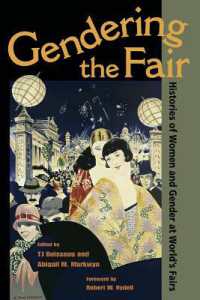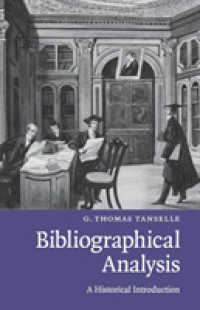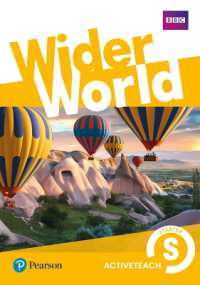Full Description
How did dictionaries come to be? When and how did they originate in a specific language? Who was involved in that origin story? How have they evolved over time? What is the tension between scholarly and commercial, and between prescriptive and descriptive, dictionaries? What is the politics behind each dictionary? And what is the connection between dictionaries and nation-building? This fascinating book has the answers. It brings together a collection of conversations with leading lexicographers from around the world to explore the role dictionaries have played in history, comparing the parallel histories of lexicography in twenty different languages. The conversations explore the way dictionaries, which preserve language while contributing to their standardization, are always political in nature, prescribing some words while cancelling others. Covering major world languages, indigenous languages, and hybrid languages, this is essential reading for academic researchers and students of lexicography, and professional and trainee professional lexicographers.
Contents
Introduction: the universe in a book; 1. Ancient Greek William A. Ross; 2. Esperanto Esther Schor; 3. German Volker Harm; 4. Chinese Haoran Tong; 5. Hybrid languages Ilan Stavans and Margaret E. Boyle; 6. English Peter Gilliver; 7. French Marie-Hélène Drivaud and Peter Sokolowski; 8. Italian Carla Marello and Claudio Marazzini; 9. Arabic Hassan Hamzé; 10. Hebrew Ruvik Rosenthal; 11. Indigenous languages Mark Turin; 12. Irish Seán Ua Súilleabháin; 13. African languages Dion Nkomo and Paul Achille Mavoungou; 14. Nahuatl John Sullivan; 15. Yiddish Gitl Schaechter-Viswanath; 16. Portuguese Rute Costa and Ana Salgado; 17. Japanese Yukio Tono; 18. Russian Mikhail Kopotev; 19. Quechua Odi Gonzales; 20. Scandinavian Lars Trap-Jensen; 21. Spanish Francisco Javier Pérez; Epilogue: the total dictionary.








